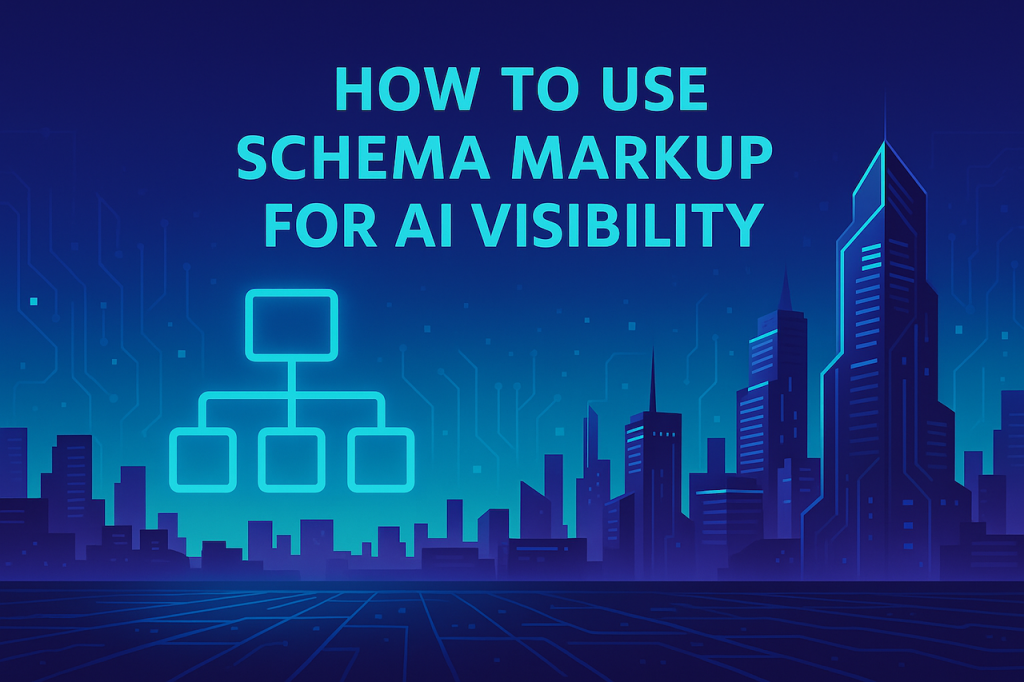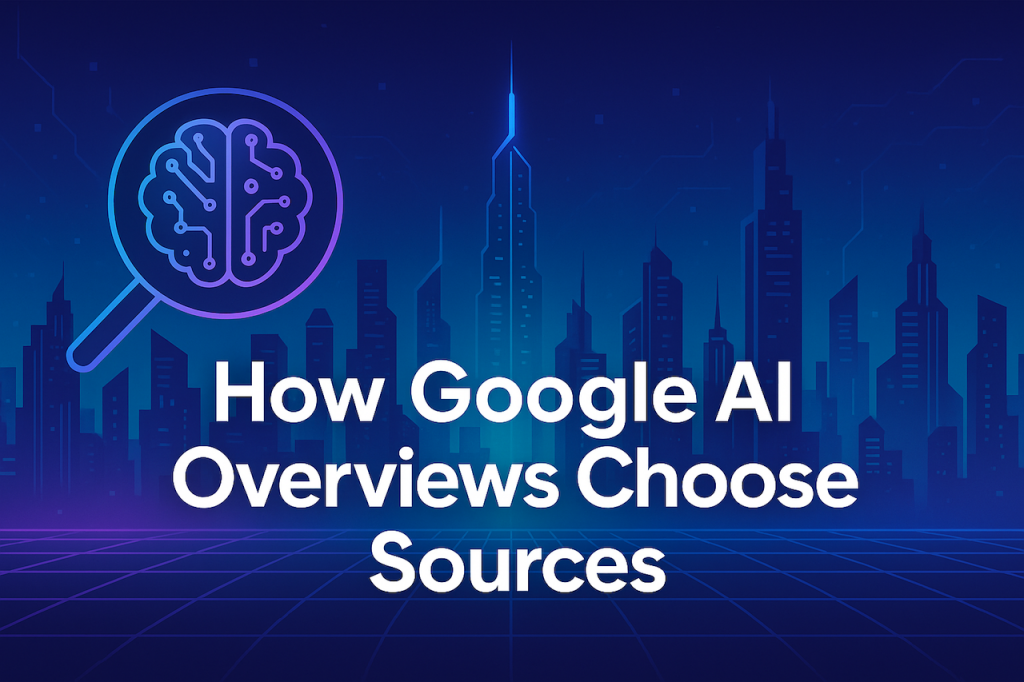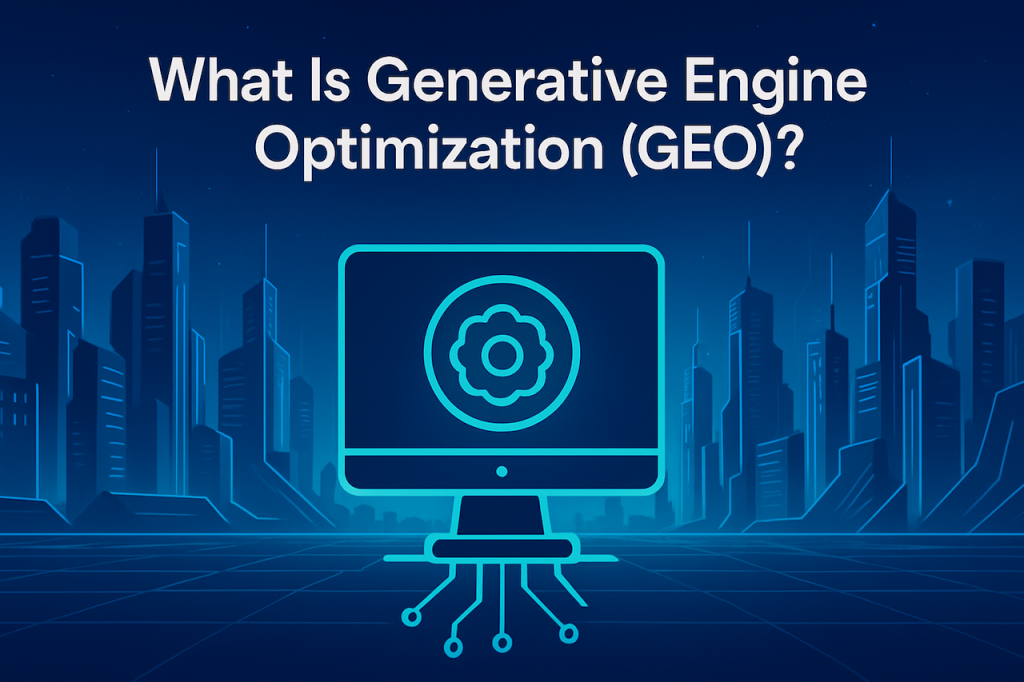How a new, low-authority domain is competing with enterprise sites in Google’s AI era using structured knowledge Introduction Generative Engine Optimization (GEO) is redefining visibility on the web. Where SEO optimized for rankings, GEO optimizes for retrieval and citation by AI systems like Google’s AI Overviews. Startups face a unique challenge: they lack the domain authority and […]
How to Use Schema Markup for AI Visibility
A step-by-step guide to helping AI systems read, understand, and cite your content. Structured data used to be an SEO afterthought. Now, it’s the foundation of Generative Engine Optimization (GEO). Schema markup translates human-readable pages into machine-readable knowledge — enabling AI systems like Google’s AI Overviews to understand context and trust your answers. If you want your content […]
How Google AI Overviews Choose Sources
Understanding what makes content cite-worthy in the AI era. If SEO was about ranking, Generative Engine Optimization is about reasoning. Google’s AI Overviews don’t just scrape; they summarize. When you ask a question, the model generates a paragraph using knowledge extracted from a selection of web sources — the most trusted, structured, and relevant pages in its […]
What Is Generative Engine Optimization (GEO)?
The future of visibility isn’t about keywords — it’s about knowledge. Generative Engine Optimization (GEO) is the evolution of SEO for the AI era. While search once revolved around keywords and backlinks, generative engines like Google’s AI Overviews, ChatGPT, and Perplexity are built to understand meaning, not metadata. They don’t crawl for strings of text […]
The Userpop Manifesto: How Brands Win in the AI Search Era
When evaluating potential agencies, consider their expertise in various aspects of branding and design.
How Retailers Can Scale PDP Q&A
Part of Userpop’s Structured Q&A Experiment — 22 test runs logged, updated weekly. We’re testing how structured question-and-answer content affects Google rankings and AI Overview visibility. This page represents one of several standalone Q&A test pages, each targeting a specific query pattern. Why is scaling product Q&A across PDPs so difficult? Because most retailers still […]
How Do AI Overviews Choose Sources?
Google AI Overviews select citations from web content that is relevant, trustworthy, and easy to parse. Structured content, schema, and clear answers all increase the likelihood of being chosen. Q: What does Google look for when choosing citations? It looks for content that directly answers the user’s query in plain language, backed by visible on-page […]
How to Measure AI Overview Citations
Measuring GEO impact means tracking when and how your site is cited in AI Overviews. Unlike SEO rankings, there is no analytics dashboard yet — you have to test queries manually and log results. Q: How do I know if my site is cited in AI Overviews? Run your target queries in Google, check the […]
GEO vs. SEO: What’s the Difference?
SEO optimizes content for keyword rankings in organic search. GEO (Generative Engine Optimization) focuses on structuring content so AI Overviews and generative search engines can cite it. Q: How is GEO different from SEO? SEO optimizes for rankings, GEO optimizes for citations in generative answers. Q: Do I need to abandon SEO to do GEO? […]
Does Structured Q&A Improve AI Citations?
Part of Userpop’s Structured Q&A Experiment — 22 test runs logged, updated weekly. We’re testing how structured question-and-answer content affects Google rankings and AI Overview visibility. Each page in this series explores a unique query pattern to understand how schema, formatting, and internal linking influence AI citations. Does structured Q&A improve AI citations? Yes. Clear […]




